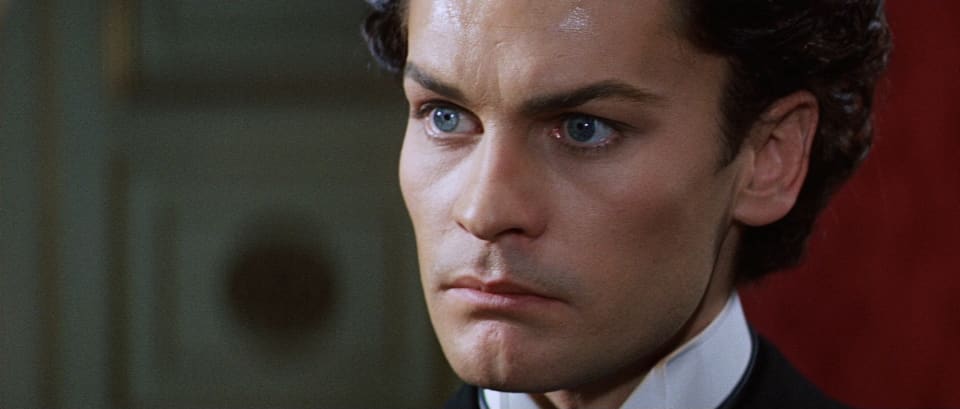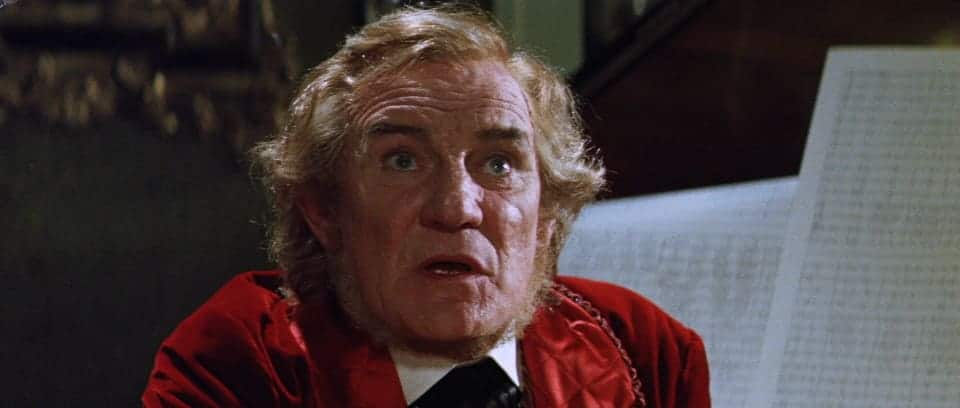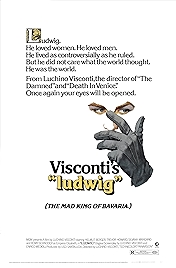As mad and excessive as the king it portrays, Luchino Visconti’s Ludwig – about the “mad” King Ludwig II (1845-1886) of Bavaria – is a vast, sprawling and endlessly sumptuous display of the excesses of a monarch who’s clearly off his chump.
It got absolutely hammered by the US critics when it opened there in 1973 – Roger Ebert gave it one star and described it as “lethargic and persistently uninteresting”. The New York Times said it was “bereft of ideas”. And neither of them had seen the full-length four-hour version. At least 30 minutes had been lopped for its US distribution.
Which is a pity, because the sheer unwieldy size of the thing is largely its point. Ludwig’s excess became legendary – his castle at Neuschwanstein is familiar to everyone as a result of Disney borrowing its lines for their fairytale castle – but Ludwig’s castle-building mania did not stop there. There was his Herrenschiemsee, his copy of French king Louis XIV’s castle at Versaille, plus various others, most of which Visconti uses as backdrops. One of this film’s great claims is its authenticity.
Great noble families adapting to the modern era was one of Visconti’s abiding concerns. He was a count himself and grew up in a palazzo and various castles. He knew whereof he spoke and returned to the subject regularly – most successfully in The Leopard, where democracy is the emerging force to be dealt with by a noble family. Less successfully in The Damned, where the Nazis present a challenge to a vastly wealthy dynasty of German industrialists.
Here there is no external challenge. Ludwig’s fight is with the licence that monarchy grants, and with his own tendency towards excess. A case of “with great power comes no responsibility whatsoever” and what that leads to. Helmut Berger is perfect casting as the increasingly dissolute, disconnected and clueless monarch, who we meet lisping elegantly on the deathbed of his father and who we’ll follow through his 22-year reign to his own early death, after having first been deposed by state ministers who can no longer put up with his vainglorious projects (and his sheer refusal to do any royal “work” at all).
Ludwig seems from our first encounter with him obviously gay and so his close relationship with Elisabeth of Austria (Romy Schneider) is initially puzzling, until it becomes clear that this is just another example of massive self-delusion on Ludwig’s part, and a clear-eyed understanding of the situation on Elisabeth’s. Not for a second does she consider Ludwig as a potential romantic partner. Instead she offers up Sophie (Sonia Petrovna), another royal cousin, as a wife, while Ludwig, free from the necessity of pretending any more, begins to explore his homosexual tendencies. A strapping servant here, a horseman there, an entire battalion of soldiers in one of the film’s set pieces – a grand, listless orgy featuring quite a lot of young men in lederhosen.
Berger begins to look increasingly like a vampire, red-eyed and wan, and Visconti piles on the gothic excess to emphasise the point. In a sense nothing much happens in this film – both Ebert and the NYT are right – except the one big thing. The slo-mo depiction of the slow fall of Ludwig. There is no complicated story. No psychology. No flashbacks. Visconti gradual slides us from light to dark, from wide vistas to tight shots, from female company to male. Even the weather closes in. Things get murky.
It’s gothic, slow and eye-catching. Visconti stages it magnificently. What an eye for a crowd scene the man had, and what locations these are, gorgeously lit by Armando Nannuzzi and frequently featuring the grand romantic sweeps of the music of Wagner (who crops up as a story element, played by an unlikely but convincing Trevor Howard). It’s like drowning in expensive chocolate, a portrait of decay that’s unafraid to take it slow, because that’s how decadence takes hold.
Ludwig – Watch it/buy it at Amazon
I am an Amazon affiliate
© Steve Morrissey 2023


